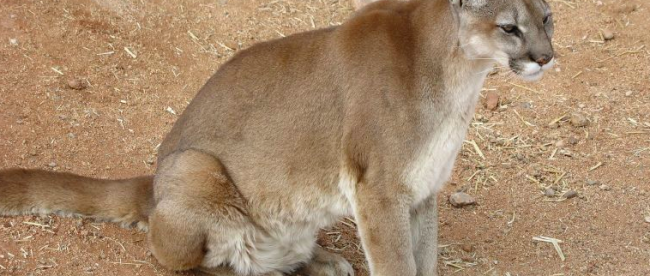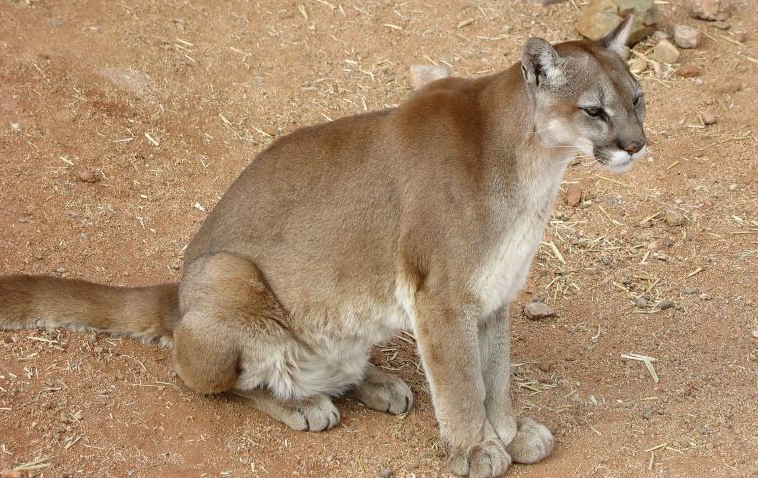An Aria a Day Keeps the Cougars Away


Cougars — also known as pumas, catamounts, or mountain lions — look a bit like really big house cats, as seen above. But these human-sized animals don’t make for good pets. Cougars are apex predators; they hunt other animals, but no other animals (except us humans) are known to hunt mature cougars. And they’re not cuddly by any sense. While most cougars will leave you alone if you happen to come across one on a hike, a preying cougar can mean death for human passerby. Per the Mountain Lion Foundation, “if you do see a mountain lion, no matter how thrilled you are to be one of the very few who gets such an opportunity, stay well back, and take the encounter seriously.” Specifically, the Foundation gives five tips: you should make yourself seem as large as possible; make a lot of noise; act defiant, showing no fear; slowly create distance between you and the beast; and ultimately, fight back if necessary.
Or, you should sing some opera.
In August of 2013, a Colorado woman named Kyra Kopenstonsky was on one of her many hikes to date. Having moved to Colorado from Ohio a bit more than a year prior, she had never seen a mountain lion in the wild, but that was about to change. Kopenstonsky heard a twig snap behind her and when she turned around, she saw one no more than ten to fifteen feet away from her. So she slowly walked in the opposite direction.
The mountain lion followed.
Over the next twenty minutes, the cat followed Kopenstonsky through the wild, “often pouncing in front of her” according to Outdoor Life. This was a scary situation, and for good reason — when it comes to cougars, stalking is a sign of impending danger. As Wikipedia explains, “although capable of sprinting, the cougar is typically an ambush predator. It stalks through brush and trees, across ledges, or other covered spots, before delivering a powerful leap onto the back of its prey and a suffocating neck bite. The cougar is capable of breaking the neck of some of its smaller prey with a strong bite and momentum bearing the animal to the ground.”
That’s not a good way to go, but fortunately for Kopenstonsky, she knew the five things one should do if one encounters a mountain lion — and she also had cell reception and was able to call for help. But help was more than a half-hour away, so she had to fend for herself in the interim. Having failed to create distance between her and the animal, she brandished a stick and tried to make herself look bigger than she was, but to no avail. She knew she had to get loud. Instincts kicked in and Kopenstonsky, alone in the wilderness with a mountain lion stalking her every move, broke out into song.
It worked. As she told the press, “I don’t know why, I just started singing opera really loud. It kind of put its ears down and just kept looking at me, and it sort of backed away. Then, it came around the bushes and came towards me again and crouched about 10 feet away.” Ultimately, the animal wandered off, perhaps in search of a quieter meal.
Police arrived at the park as Kopenstonsky emerged from the trailhead to find her safe but shaken. In a press release, the police department noted that “She [Kopenstonsky] is obviously educated as to what to do in this unexpected situation,” attributing that knowledge — and her singing voice, perhaps — to her successful escape.
Bonus fact: Cougars may be apex predators, but that doesn’t mean they’re not kind to one another. According to research by cat species preservationist organization Panthera, they share. Per the research, as reported by the Peninsula Daily News, “a cougar that shares a kill with another mountain lion is 7.7 times more likely to receive a meal from the same cougar in the future.”
From the Archives: Fangs For The Blood: Cougars aren’t the only animals that share their food. So do bats.
